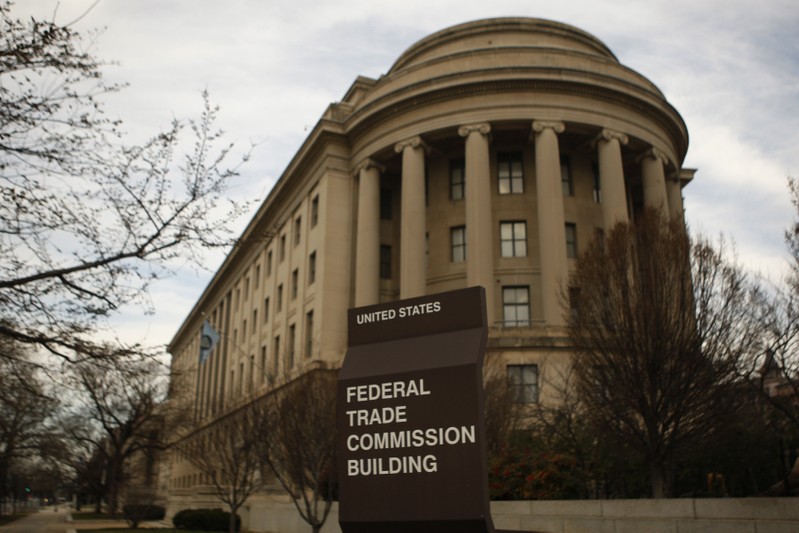
The Federal Trade Commission building is seen in Washington on March 4, 2012. REUTERS/Gary Cameron (UNITED STATES)
September 13, 2018
By Diane Bartz
WASHINGTON (Reuters) – The chairman of the Federal Trade Commission, which stops mergers it believes will push up prices, signaled on Thursday he was willing to consider tougher enforcement, a move that could affect high profile big tech companies but also energy producers, drug makers and a big swath of the U.S. economy.
Joseph Simons, who was nominated by President Donald Trump to head the FTC in October 2017 and began work in May, noted in a brief speech that during two previous stints at the FTC, most recently as head of the Bureau of Competition, there had been a tendency to take a relatively hands off approach to antitrust enforcement.
“But now at the beginning of my third stint at the commission, things have shifted. The broad antitrust consensus that has existed within the antitrust community in a relatively stable form for about 25 years is being challenged,” he said at a conference organized by the FTC.
“First, some recent economic literature concludes that the U.S. economy has grown more concentrated and less competitive over the last 20 to 30 years, which happens to correlate with the timing of a change to a less enforcement-minded antitrust policy, beginning in the 1980s,” he said. “These concerns merit serious attention.”
Simons also noted calls for antitrust to address issues of income inequality and lagging wages, and said that this would also be discussed.
“We do this with the goal of understanding if our current enforcement policies are on the right track or on the wrong track, and if they are on the wrong track, what shall we do to improve them?” he said, noting that he was keeping “a very open mind.”
Big tech companies such as Alphabet Inc’s Google, Facebook Inc, Amazon.com Inc and others have faced criticism from Republicans and Democrats for everything from widespread collection of users’ information to being used by Russia to meddle in the 2016 U.S. election to being unfair in how they use their dominance to compete with smaller rivals.
The FTC did an investigation of Google that ended in 2013 with a slap on the wrist for the search and advertising company.
In a congressional hearing in June, Simons noted the clout of the few, powerful big tech companies but also said he would not support attacking companies “because they’re big and successful.”
The FTC does much more than review big tech mergers. It also reviews mergers in the energy sector, such as a deal to combine industrial gases companies Praxair Inc and Linde, as well as mergers across health care, from hospitals deals to pharmaceutical mergers.
(Reporting by Diane Bartz; Editing by Susan Thomas)
